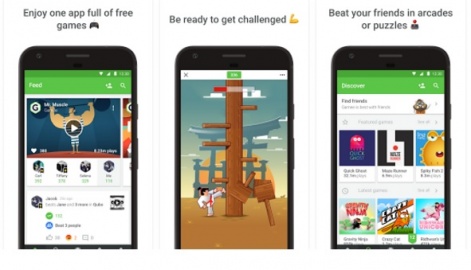More light has been shed on HTML5 mobile gaming since the launch of Facebook Instant Games in November 2016.
And understandably so. After all, the social media giant's first step into the burgeoning space brought HTML5 game developers the potential to reach 1.2 billion monthly active users on Facebook Messenger.
However, while it is no doubt the most high-profile, Facebook certainly isn't the first company to bet big on HTML5 games for mobile.
Czech outfit Gamee, for instance, launched its own HTML5 game platform way back in 2015.
Its eponymous Android and iOS app currently allows players to access a haul of 60 HTML5 games, around one third of which were developed in-house at the 15-person firm.
Here, there and everywhere
Gamee has also got on board with Kik, Telegram and most recently Facebook Messenger as each chat app has rolled out its own HTML5 game integration.
“We saw less and less people downloading several apps for their phones, and more people spending more time with the apps they already have, especially social messaging apps,” reflects Bozena Rezab, CEO of Gamee.
“In the last year this proved to be true because the social messaging apps have grown the most, whereas in the gaming category the time spent has decreased for the first time.”
Time spent in messaging apps has grown the most, whereas in gaming it has decreased.Bozena Rezab
Many game developers will be keen to get a slice of that enviable engagement. That's why Gamee - in addition to its own platform which is entering beta in June and already boasts four million MAUs - will also help other studios get their games on platforms like Facebook Instant Games.
This means that when the platform opens to external studios, launching on Gamee means being playable through the app on iOS and Android, in iMessage, and on Facebook Messenger, Telegram and Kik.
“We want to make it as easy as possible,” says Rezab. “You connect your game to Gamee, and it's done. You don't really need to take care of any integration because you use what we have on the platform.”
Pick and mix
At present, Rezab explains that Gamee is focused on “very casual, snackable gaming experiences” that don't demand a major time investment from their players.
“Mostly, what we have seen working is enriching the chat between friends with the game,” she adds.
Intriguingly, of Gamee's varied selection of 60 games, Rezab also notes that there is no clearly dominant game that overshadows the rest. No killer app.

“The interesting thing is that there is no really strong hero content,” she reveals. “There isn't really a big concentration of attention to one or two titles.
“People don't play one or two games, they play approximately seven to nine games at the same time… they fit a different context, a different habit.”
Selling a vision
Monetisation remains absent from Facebook Instant Games, although Rezab believes that it will be rolling out “very soon”.
As for Gamee's approach to monetising these “snackable” experiences, in-app purchases are not a natural fit.
Instead, a large part of its monetisation strategy thus far has related to brands, teaming up to create HTML5 games with NASA, Guinness World Records and popular YouTubers.
With HTML5 gaming, brands can very easily tell their story to a young audience and engage them.Bozena Rezab
“With HTML5 gaming, they can very easily tell their story to a young audience and engage them,” says Rezab.
“Especially for brands, this is something very new. Most of them haven't opened a gaming strategy because it was just too costly and research intensive to do a full native game.
“So for them to see that it can be developed in a couple of weeks, and it is not that expensive, and you can distribute it on a network to existing users very easily - that's what they want to hear.”
Another way in which brands could be involved with monetising HTML5 games, and one that Gamee is currently experimenting with, is the introduction of branded in-game items and rewards.
“We're trying to look into ways that are as native as possible so that they're not disruptive and annoying - which is something that mobile advertising has been infamous for,” Rezab states.
“But there are multiple options and all of them should be tested.”
Opening the gates
While Gamee has only worked with selected partners so far, the platform will hit beta in June and open up to more external developers - with the full launch expected in November 2017.
And now more than ever, Rezab believes that developing HTML5 games is an attractive prospect.
“Facebook did a great campaign for HTML5 with Instant Games,” she considers. “Not only did it push the content to people by making it visible in Messenger, but also there has been a lot of press around it.
“I still think we're at the very beginning of a huge trend, and when you already see social media giants moving in this way, it's happening.”
Gamee's ultimate aim, then, is to be the platform through which developers can launch games and make them instantly playable across as many devices and contexts as possible - thus enabling a kind of virality.
“Our role is to make sure the platform is streamlined for the best shareability possible, so that's where the majority of our work, attention and money goes to,” Rezab concludes.
After one and a half years of laying the groundwork, Gamee's real chance to achieve this begins in June 2017 when its platform enters beta.





















